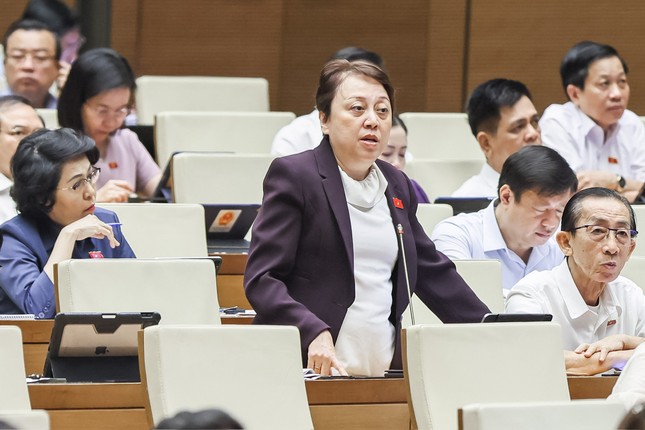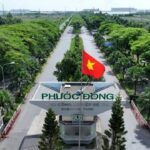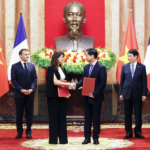Questioning the Removal of the Death Penalty for 4 Crimes
On May 27th, the National Assembly discussed the draft Law amending and supplementing a number of articles of the Penal Code.
At the meeting, delegate Pham Khanh Phong Lan (Ho Chi Minh City) raised concerns about the abolition of the death penalty for 4 crimes: Embezzlement, bribery, illegal drug trafficking, and production and trading of counterfeit medicine.
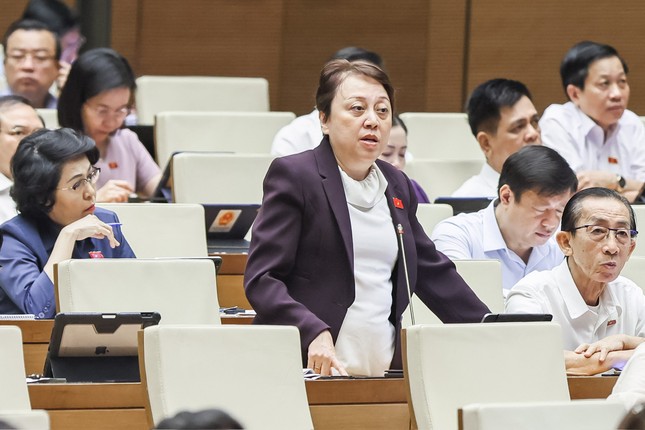
Delegate Pham Khanh Phong Lan. Photo: Nhu Y
Affirming the seriousness of these crimes and their consequences, Ms. Lan also shared the challenges faced by law enforcement and executive agencies in dealing with such offenses. She questioned the rationale behind reducing the sentences for these crimes.
Eight offenses were proposed to be removed from the death penalty list and replaced with life imprisonment without parole consideration. These offenses include: Acts aimed at overthrowing the people’s administration; sabotage of the State’s material-technical foundation; Production and trading of counterfeit medicines and medical equipment; Waging aggressive wars and invading other countries; Espionage; Illegal drug trafficking; Embezzlement; Bribery.
“If we show leniency towards criminals, what about the families of the victims and those who have suffered due to these crimes? Let’s not say that we are unaware of the consequences of our actions,” Ms. Lan expressed.
While agreeing with the increased penalty frames in the law, she emphasized the need to retain the ultimate deterrent – the death penalty – for the most egregious violations.
“Doing so is a testament to our National Assembly’s commitment to building laws that serve the people and society, ensuring a safe environment for our citizens,” asserted the delegate from Ho Chi Minh City.
Immediate Compensation Offered After Death Sentence Proposal
Delegate Pham Van Hoa (Dong Thap) disagreed with the removal of the death penalty for illegal drug trafficking and embezzlement.
Mr. Hoa stated that up until now, no one has been sentenced to death for embezzlement. However, in the case involving SCB Bank, when the People’s Procuracy proposed the death sentence for Truong My Lan, her family quickly offered compensation in hopes of leniency and a reduced sentence.
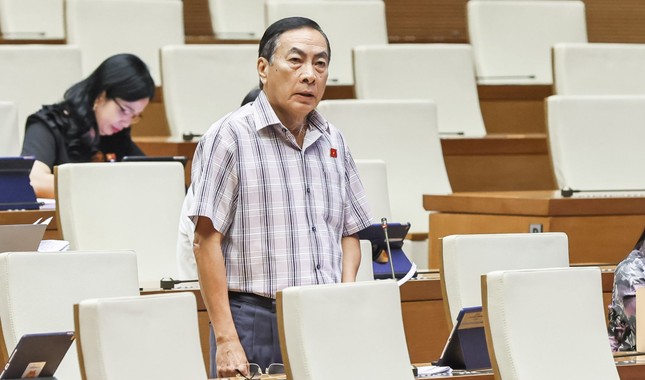
Delegate Pham Van Hoa (Dong Thap). Photo: Nhu Y
Emphasizing the importance of the death penalty as a deterrent, Mr. Hoa requested that the drafting committee reconsider retaining the death penalty for embezzlement. He added that even with the death penalty in place, if the accused effectively remedies the consequences of their actions, the authorities can consider reducing their sentence.
Using the case of Truong My Lan, who caused a loss of millions of billions to the state budget, Mr. Hoa illustrated the magnitude of such crimes. He pointed out that if half of this amount were recovered, it would fund 50% of the North-South high-speed railway project.
Affirming Progressive and Humane Criminal Policies
Delegate Nguyen Thi Viet Nga (Hai Duong) shared her thoughts on the abolition of the death penalty for certain crimes, a matter of great concern to the people and the National Assembly deputies. She highlighted that the death penalty is not only the harshest punishment in Vietnam’s legal system but also a symbol of justice and societal outrage against heinous crimes.
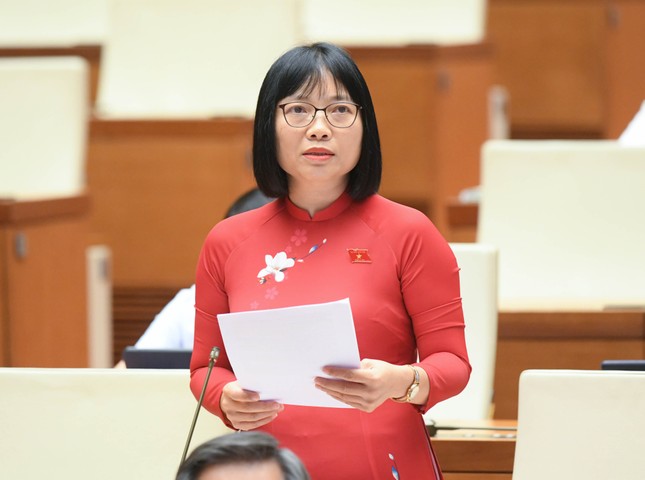
Delegate Nguyen Thi Viet Nga. Photo: Nhu Y
Ms. Nga acknowledged the concerns regarding deterrence, crime prevention, and societal psychological impacts when reducing or eliminating this form of punishment. She traced the progressive trajectory of Vietnam’s society, noting that since 1999, the number of crimes punishable by death has decreased from 29 to 18, and the application of the death penalty has been restricted for certain groups such as juveniles, pregnant women, and elderly individuals.
The delegate asserted that these changes align with international legal trends, as many countries have abolished or significantly limited the use of capital punishment. “This demonstrates Vietnam’s progressive and humane criminal policies,” she said. Additionally, she pointed out that the death penalty for certain crimes is not truly necessary or effective, and in practice, it is rarely applied.”
Ms. Nga argued that removing the death penalty for certain offenses does not equate to leniency towards criminals but rather reflects a contextual adjustment in line with legal developments, evolving human rights perspectives, and the current reality of crime prevention and control.
“VRG Group Launches 205 Townhouses in $6 Billion Investment Project”
The real estate market has been experiencing a dire shortage of affordable housing options, with properties priced at 1 billion VND being extremely rare. However, VRG and MinhPhuLand have stepped up to the challenge by announcing the upcoming sale of 205 townhouses starting from a remarkable price range of just 1.2 to under 2 billion VND. This unexpected yet welcome news has brought a ray of hope to homebuyers seeking affordable options without compromising on quality and convenience.
“Sanofi and VNVC Sign a Technology Transfer Partnership for Vaccine Manufacturing.”
On May 26, in Hanoi, in the presence of President Luong Cuong and French President Emmanuel Macron, Vietnam Vaccine Joint Stock Company (VNVC) and Sanofi, a French pharmaceutical company, signed an agreement for technology transfer of Sanofi’s vaccine production technology to VNVC’s Vaccine and Biological Production Plant in Vietnam.
Crafting and Trading Counterfeit Medicines: A Heinous Act of Mass Murder
“The severe consequences of counterfeit medicine and vaccine production and trafficking cannot be overstated. We must take a firm stand against these heinous crimes. To deter such despicable acts, lawmakers are proposing the harshest penalties, including the death sentence, for those found guilty of producing and trading fake food products, particularly fake milk and supplements.”
Enhancing Vietnam – Japan Economic Partnership
“Amidst global economic challenges, particularly the backdrop of the US countervailing duty policy, strengthening the Vietnam-Japan Comprehensive Strategic Partnership is of paramount importance for the socio-economic development of both nations.”

